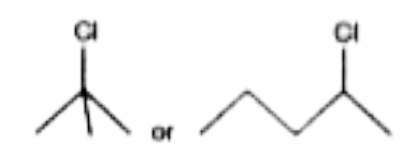Which one of the following pairs of substances on reaction will not not evolve H2 gas?
Iron and steam
Iron and H2SO4 (aqueous)
Copper and HCl (aqueous)
Sodium and ethyl alcohol
The correct Answer is:C
To determine which pair of substances will not evolve hydrogen gas (H₂) upon reaction, we need to consider the reactivity of the metals involved and their reduction potentials.
1. Understand the Concept of Hydrogen Evolution:
Hydrogen gas is evolved when a metal reacts with an acid. The ability of a metal to displace hydrogen from acids depends on its position in the electrochemical series.
2. Review the Electrochemical Series:
- Metals with a more negative reduction potential than hydrogen can displace hydrogen ions (H⁺) from acids, resulting in the evolution of H₂ gas.
- Conversely, metals with a positive reduction potential cannot displace hydrogen and will not evolve H₂ gas.
3. Identify the Metals in the Question:
- The metals mentioned are iron (Fe), sodium (Na), and copper (Cu).
- Their standard reduction potentials are approximately:
- Sodium (Na): -2.71 V
- Iron (Fe): -0.44 V
- Copper (Cu): +0.34 V
4. Analyze Each Metal's Ability to Evolve H₂:
- Sodium (Na): With a reduction potential of -2.71 V, sodium can easily displace hydrogen from acids, thus evolving H₂ gas.
- Iron (Fe): With a reduction potential of -0.44 V, iron can also displace hydrogen from acids, leading to H₂ evolution.
- Copper (Cu): With a reduction potential of +0.34 V, copper cannot displace hydrogen from acids, meaning it will not evolve H₂ gas.
5. Conclusion:
Based on the analysis, the pair that will not evolve H₂ gas upon reaction is the one that includes copper. Therefore, the answer is the pair that contains copper.
Final Answer:
The pair of substances that will not evolve H₂ gas is the one that includes copper.
---
Hydrogen gas is evolved when a metal reacts with an acid. The ability of a metal to displace hydrogen from acids depends on its position in the electrochemical series.
- Metals with a more negative reduction potential than hydrogen can displace hydrogen ions (H⁺) from acids, resulting in the evolution of H₂ gas.
- Conversely, metals with a positive reduction potential cannot displace hydrogen and will not evolve H₂ gas.
- The metals mentioned are iron (Fe), sodium (Na), and copper (Cu).
- Their standard reduction potentials are approximately:
- Sodium (Na): -2.71 V
- Iron (Fe): -0.44 V
- Copper (Cu): +0.34 V
- Sodium (Na): With a reduction potential of -2.71 V, sodium can easily displace hydrogen from acids, thus evolving H₂ gas.
- Iron (Fe): With a reduction potential of -0.44 V, iron can also displace hydrogen from acids, leading to H₂ evolution.
- Copper (Cu): With a reduction potential of +0.34 V, copper cannot displace hydrogen from acids, meaning it will not evolve H₂ gas.
Based on the analysis, the pair that will not evolve H₂ gas upon reaction is the one that includes copper. Therefore, the answer is the pair that contains copper.
The pair of substances that will not evolve H₂ gas is the one that includes copper.
Similar Questions
Which one of the followign pairs of substances and function is not correctly matched?
View SolutionWhich one of the following pairs of chemical substance, is correctly categorized ?
View SolutionWhich of the following pairs of substances are found inside a mitochondrion?
View SolutionWhich one of the following pairs undergoes Snl substitution reaction faster and why?

View SolutionWhich one of the following pairs undergoes Snl substitution reaction faster and why?

View SolutionWhich one of the following pair of waste substances is removed from blood in ornithine cycle :
View SolutionWhich of the following pair of substance give same gaseous product on reaciton with water?
View SolutionWhich ones in the following pairs of substances undergoes SN2 substitution reaction faster and why ?

View SolutionWhich one in the following pairs of substances undergoes SN2 substitution reaction faster and why?

View SolutionWhich of the following pairs will not produce dihydrogen gas ?
View Solution
